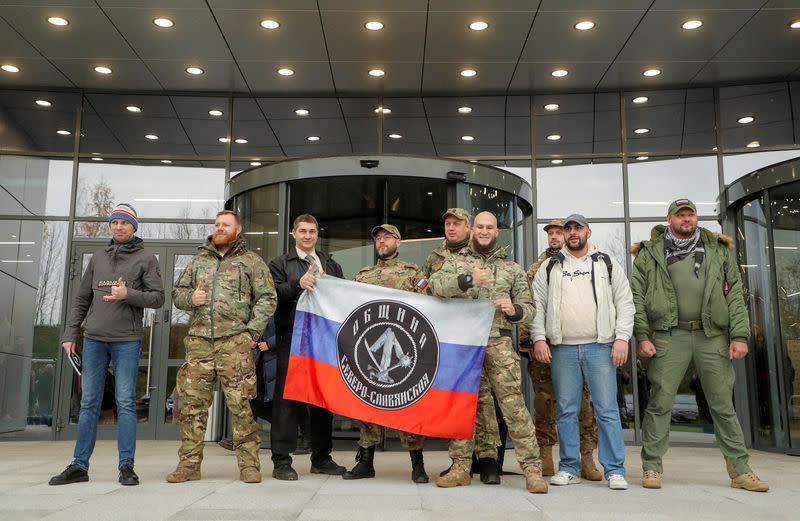Kremlin denies issuing media with guidance to suppress mentions of mercenary boss
MOSCOW (Reuters) - The Kremlin on Thursday denied it had issued state media with formal recommendations suggesting they stop mentioning the Wagner mercenary group or its founder Yevgeny Prigozhin after what looked like a leaked guidance document surfaced online.
In response to a Reuters comment request, the Kremlin said:
"There were no recommendations from the Kremlin to the media. There are a lot of myths and fakes circulating around Prigozhin and Wagner."
Prigozhin, a 61-year-old ex-convict, has grabbed headlines in recent months after he disclosed following years of denials that he had founded the private military group which is active in Ukraine, Africa and the Middle East.
Bolstered by thousands of convicts, his forces have spearheaded attacks in eastern Ukraine during what Moscow calls its "special military operation" though have taken heavy casualties in the process.
Prigozhin has publicly criticised the defence ministry over its own tactics amid signs that the Kremlin is moving to curb what it sees as his excessive political clout.
On Saturday, Grey Zone, a social media channel associated with Wagner, published what looked like a leaked guidance document for state media from the Kremlin.
It advised recipients to stop mentioning Prigozhin or Wagner and suggested generic phrases to describe his forces instead, which some state media regularly use.
Former Kremlin adviser Sergei Markov told Reuters he had been requested not to promote the mercenary leader.
"They underlined that 'we don't ban you but it's better not to do it'," he said, declining to identify who "they" were.
Prigozhin said last week he had been stripped of the right to recruit convicts from prisons - a key pillar of his nascent influence and one which has helped his forces make small but steady gains in Ukraine.
Prigozhin complained on Wednesday, saying the prison recruitment system had been working well and that the number of Wagner units would now inevitably shrink and his group would not be able to do everything it wanted.
Markov said he believed President Vladimir Putin had told Prigozhin to halt public criticism of the army's top brass at a St Petersburg meeting around Jan. 14.
Prigozhin has moderated his criticism since, so far avoiding personal attacks while still complaining about what he calls excessive military bureaucracy.
When asked to confirm that Putin had asked Prigozhin to halt his public criticism during the St Petersburg meeting, the Kremlin left the question unanswered.
(Reporting by Reuters; Writing by Andrew Osborn; Editing by Guy Faulconbridge)

 Yahoo News
Yahoo News 

